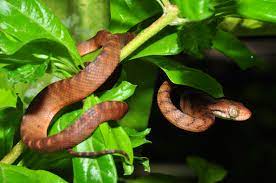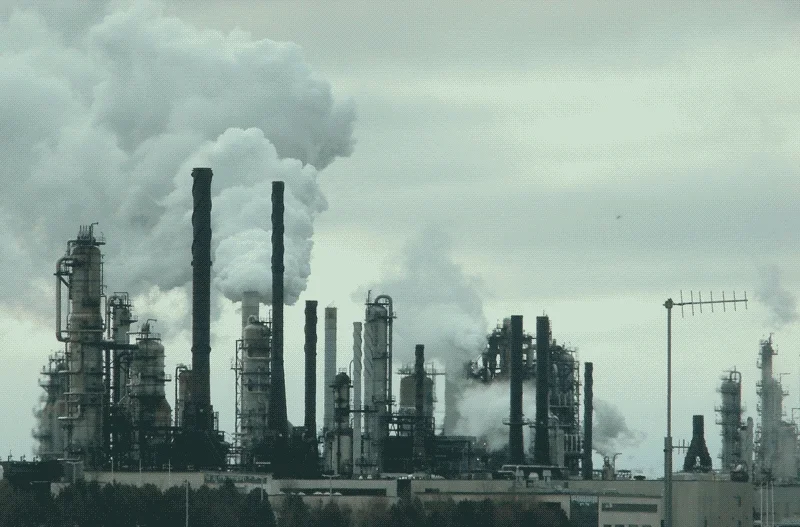Caroline Koffke
Jillian Holbrook
Caroline Koffke
Jillian Holbrook
Skills you’ll gain in this topic:
- Describe how natural events and human activities disrupt ecosystems.
- Explain ecological succession and how ecosystems recover over time.
- Predict how ecosystems respond to various disturbances.
- Relate disturbances to changes in ecosystem structure and function.
- Analyze ecosystem resilience and factors that promote recovery.
Evolution
Disruptions to ecosystems may lead to the process of evolution, as changes in the environment can create selective advantages for some species over others. This process takes place if certain adaptations give organisms an advantage over others to survive and reproduce.
Remember that an adaptation is a type of heritable genetic variation that increases the fitness of an organism. Increased fitness through adaptations makes the organism more likely to survive and reproduce, which allows its genes to be transferred to offspring. Natural selection occurs when heritable variation induces differential reproductive success.
Mutations may introduce new alleles into a population that results in fitness benefits. However, mutations are random, which means they are not specifically attributed to environmental pressures.
Competition and Invasive Disruption
Disruptions in ecosystems may lead to competition that changes the size of populations. If the disruption decreases a certain type of resource, there may be an increase in competition intraspecifically (between members of a species) and interspecifically (between members of different species). Species that are more successful at obtaining resources will survive and reproduce more.
The introduction of invasive species, intentionally or unintentionally, can allow a species to exploit a new ecological niche without the threat of predation or competition as a regulating factor. Essentially, invasive species are able to outcompete other organisms for resources and disrupt existing ecosystem interactions.

Image Courtesy of Wikipedia Images
A classic example of an invasive species is the introduction of the brown tree snake to Guam. Brown tree snakes came to Guam from the South Pacific as stowaways in ship cargo. Without any natural predators to control their population, the brown tree snake population exploded, allowing it to wipe out small mammal populations and most of Guam's native bird species. 🦜
Natural and Anthropogenic Disruptions
The most damaging disruptions to ecosystems are anthropogenic impacts or environmental changes caused by human influence. Our activity has led to the destruction of habitats, extinction, pollution, the spread of invasive species, and climate change. Organisms that are unable to adapt as quickly to their changing environments are vulnerable to extinction.

Image courtesy of Giphy.
Natural changes in environments can also contribute to disruptions within ecosystems; however, some of these natural occurrences are becoming more frequent due to humans. From geographical to meteorological events—including flooding, forest fires, and earthquakes—natural disasters change habitats and disrupt ecosystems.
Regardless of the cause, disruptions to ecosystems put a great deal of stress on the organisms living there and affect the survival of species.
-----
Check out the AP Bio Unit 8 Replays or watch the 2021 Unit 8 Cram
<< Hide Menu
Caroline Koffke
Jillian Holbrook
Caroline Koffke
Jillian Holbrook
Skills you’ll gain in this topic:
- Describe how natural events and human activities disrupt ecosystems.
- Explain ecological succession and how ecosystems recover over time.
- Predict how ecosystems respond to various disturbances.
- Relate disturbances to changes in ecosystem structure and function.
- Analyze ecosystem resilience and factors that promote recovery.
Evolution
Disruptions to ecosystems may lead to the process of evolution, as changes in the environment can create selective advantages for some species over others. This process takes place if certain adaptations give organisms an advantage over others to survive and reproduce.
Remember that an adaptation is a type of heritable genetic variation that increases the fitness of an organism. Increased fitness through adaptations makes the organism more likely to survive and reproduce, which allows its genes to be transferred to offspring. Natural selection occurs when heritable variation induces differential reproductive success.
Mutations may introduce new alleles into a population that results in fitness benefits. However, mutations are random, which means they are not specifically attributed to environmental pressures.
Competition and Invasive Disruption
Disruptions in ecosystems may lead to competition that changes the size of populations. If the disruption decreases a certain type of resource, there may be an increase in competition intraspecifically (between members of a species) and interspecifically (between members of different species). Species that are more successful at obtaining resources will survive and reproduce more.
The introduction of invasive species, intentionally or unintentionally, can allow a species to exploit a new ecological niche without the threat of predation or competition as a regulating factor. Essentially, invasive species are able to outcompete other organisms for resources and disrupt existing ecosystem interactions.

Image Courtesy of Wikipedia Images
A classic example of an invasive species is the introduction of the brown tree snake to Guam. Brown tree snakes came to Guam from the South Pacific as stowaways in ship cargo. Without any natural predators to control their population, the brown tree snake population exploded, allowing it to wipe out small mammal populations and most of Guam's native bird species. 🦜
Natural and Anthropogenic Disruptions
The most damaging disruptions to ecosystems are anthropogenic impacts or environmental changes caused by human influence. Our activity has led to the destruction of habitats, extinction, pollution, the spread of invasive species, and climate change. Organisms that are unable to adapt as quickly to their changing environments are vulnerable to extinction.

Image courtesy of Giphy.
Natural changes in environments can also contribute to disruptions within ecosystems; however, some of these natural occurrences are becoming more frequent due to humans. From geographical to meteorological events—including flooding, forest fires, and earthquakes—natural disasters change habitats and disrupt ecosystems.
Regardless of the cause, disruptions to ecosystems put a great deal of stress on the organisms living there and affect the survival of species.
-----
Check out the AP Bio Unit 8 Replays or watch the 2021 Unit 8 Cram

© 2024 Fiveable Inc. All rights reserved.